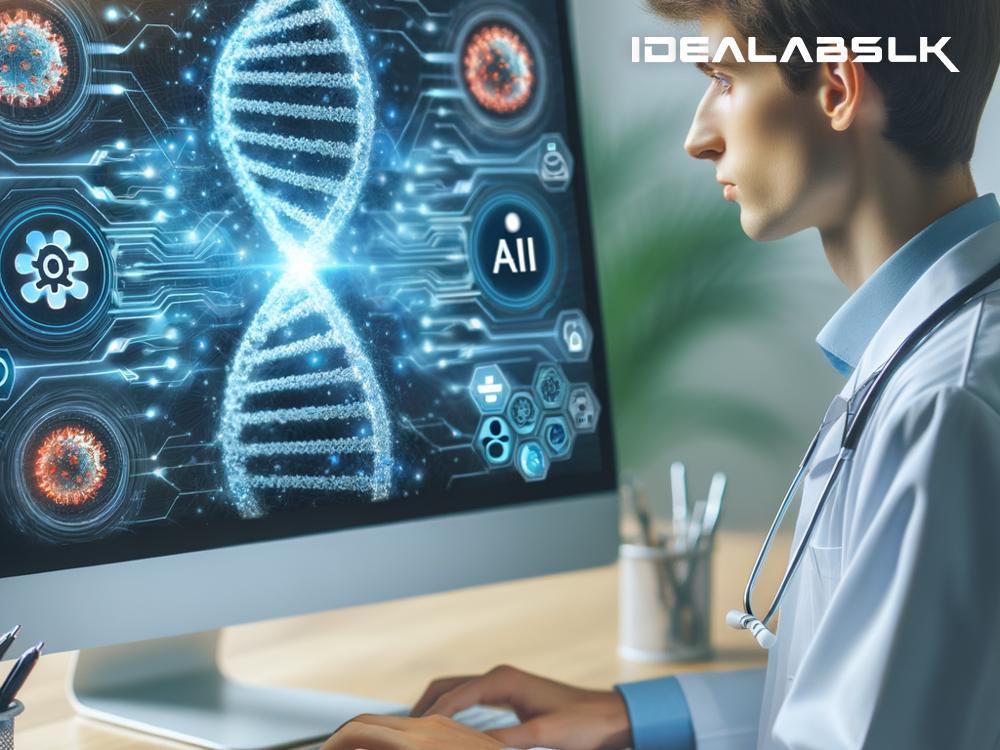How AI is Assisting Doctors in Diagnosing Rare Diseases Faster
In the vast and intricate world of medicine, diagnosing rare diseases presents a daunting challenge even for the most experienced doctors. Often dubbed as medical mysteries, these conditions can take years to identify, largely due to their uncommon nature and the broad spectrum of symptoms they present. However, the medical field is witnessing a revolutionary helper that's starting to make significant strides in diagnosing these elusive illnesses faster: Artificial Intelligence (AI).
AI, a technology that enables machines to mimic human intelligence, is proving to be a powerful ally for doctors in unraveling the complexities of rare diseases. Its integration into the healthcare sector is transforming the ways diseases are diagnosed, making the process quicker, more accurate, and, importantly, saving lives.
Speeding up the Diagnosis
One of the most significant impacts of AI is its ability to rapidly analyze vast amounts of data. In the context of rare diseases, this capability is invaluable. Doctors can feed AI systems with symptoms, genetic information, and medical histories, and within a fraction of the time it would take a human, AI can sift through this data, identifying patterns and correlations that might indicate a specific rare disease.
AI algorithms are designed to learn and improve over time, which means the more data they process, the better they become at diagnosing. This efficiency not only speeds up the diagnosis process but also frees up doctors to focus on treatment and care, rather than spending countless hours trying to pinpoint a disease.
Bridging Knowledge Gaps
Despite the vast pool of medical knowledge available today, no doctor can be expected to know every detail about every disease. This is where AI steps in as a crucial bridge for knowledge gaps, especially concerning rare diseases. AI systems can access and analyze medical literature, studies, and case reports from across the globe in minutes, providing doctors with the most current information and potentially similar cases to consider. This global perspective enhances a doctor's ability to diagnose rare diseases with a level of knowledge and precision that was previously unattainable.
Enhancing Genetic Analysis
Many rare diseases have a genetic component, making genetic analysis a vital tool in diagnosis. However, interpreting genetic data can be incredibly complex and time-consuming. AI technologies are adept at analyzing this genetic information quickly, identifying mutations and patterns that may be indicative of a rare disease. This not only accelerates the diagnostic process but also helps in understanding the disease better, leading to more targeted and effective treatments.
Facilitating Early Diagnosis
Early diagnosis is paramount in managing rare diseases, many of which can progress quickly if not identified and treated in their initial stages. AI's ability to rapidly process and analyze data means that it can help identify diseases much earlier than traditional diagnostic methods. Early diagnosis can drastically improve a patient's quality of life and, in some cases, can mean the difference between life and death.
Real-World Impact
Real-world applications of AI in diagnosing rare diseases are already showing promising results. For instance, AI has been used to diagnose rare genetic disorders in newborns, significantly reducing the diagnostic time from weeks to just days. In another case, AI systems have helped identify rare forms of cancer, allowing for timely and precise treatment plans that are tailored to the individual's specific condition.
Challenges and the Future
While AI's potential in assisting the diagnosis of rare diseases is undeniable, it's important to note the technology is not without its challenges. Issues such as data privacy, the need for large datasets to train AI models, and ensuring these systems are accessible to all healthcare providers are areas that need addressing. However, as technology advances and more safeguards are put in place, the role of AI in diagnosing rare diseases is set to grow even further.
The integration of AI in the medical field is ushering in a new era of diagnostics, where rare diseases are no longer as elusive as they once were. By enhancing the speed, accuracy, and efficiency of the diagnostic process, AI is not just assisting doctors but is also offering hope to millions of patients worldwide. As we continue to harness the power of AI, the future looks promising for the early detection and treatment of rare diseases, ultimately leading to better patient outcomes and transformed lives.

